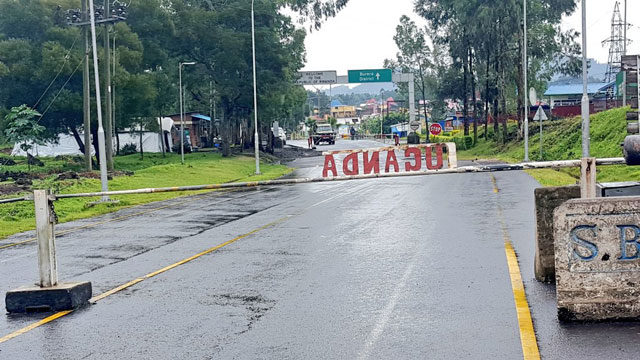
Kampala, Uganda | THE INDEPENDENT | Ugandan traders have missed 440 billion Shillings in potential earnings between March and September 2019, a period during which Rwanda has maintained a closed border at Gatuna. This is according to a compilation of figures from Bank of Uganda.
The figures, compiled monthly, show that traders in Uganda earned a paltry USD 8.3 million (31 billion Shillings) in the seven months to the end of September 2019. This is less than the USD 128.7 million (471 billion Shillings) that Ugandan traders earned in the same period last year when the border was open.
Ironically, figures show that Rwandan traders earned more from Uganda compared to what their counterparts in Kampala earned from Rwanda. They clinched USD 9.98 million (36 billion Shillings) in the same period, up from USD 12 million earned when the border was open. The figures don’t account for the informal trade between both countries.
For Uganda, the figures are a pointer to how destructive the impasse has been to the free-flow of goods and services, the hallmark of the East African Community integration.
Today November 18, 2019, both countries were expected to meet in Kampala to discuss the border opening. But Rwanda called off the meeting adding another layer of uncertainty on when trade can resume.
Isaac Shinyekwa, a researcher on regional integration said in the long run, both countries will resolve their issues but there is still an inability for two countries to figure what they want exactly. He said there were more deep-seated issues that two leaders of both countries have not disclosed.
The closure impact will be felt not just by traders but also by people in Rwanda. Rwandans crossed to Uganda to attend school, buy basics like food. This has been cut.
On the macro level, the closure will have minimal impact on the economies of both countries. Bank of Uganda has said just 0.2 per cent of Uganda’s growth will be affected while Rwanda has seen its growth forecasts have been revised upwards by the International Monetary Fund (IMF) despite the closure.
After Kigali called off a second meeting that was supposed to take place in Kampala today, Rwanda said it was not about the border issue but the fact that Uganda has failed to implement what was agreed on in Luanda, Angola.
The New Times, a Rwanda government mouthpiece reported on November 15, 2019, that it was also because some officials who were to attend the meeting weren’t available. The killing of the Ugandan traders accused of smuggling tobacco at the start of this month seems to have deepened the rift with Uganda protesting the act as reckless.
Meanwhile, figures also show that while trade to Rwanda has dipped Uganda could have compensated with The Democratic Republic of Congo. Uganda’s earnings from DRC have gone up from the average of USD 19 million per month to USD 22 million per month in the period the Kigali border has been shut.
Also, earnings from Kenya went up in the same period. The South Sudan earnings have been up and down, an indicator of the uncertainty surrounding peace talks in Juba. The earnings have sustainably been above USD 20 million per month.
*****
URN
 The Independent Uganda: You get the Truth we Pay the Price
The Independent Uganda: You get the Truth we Pay the Price





